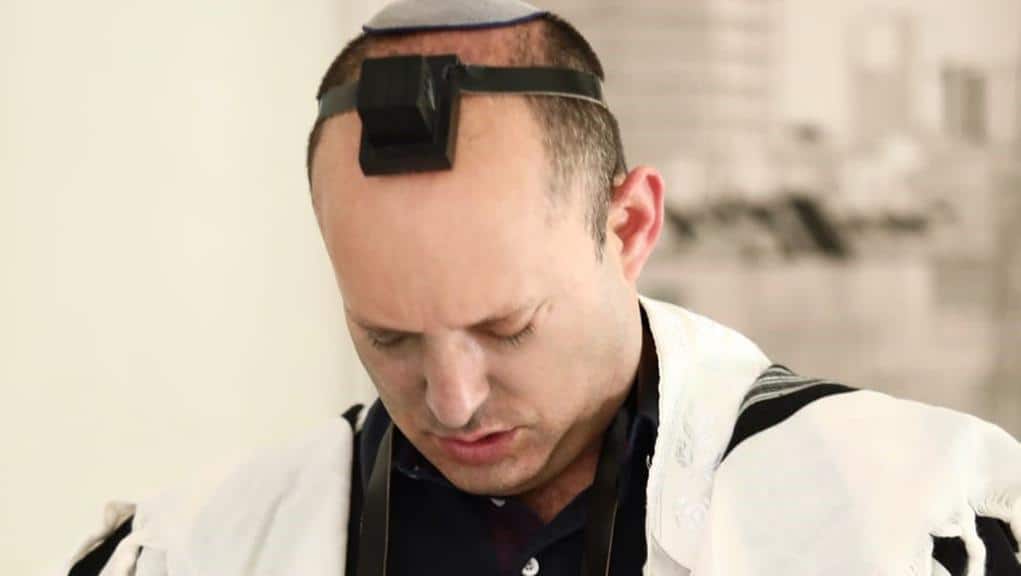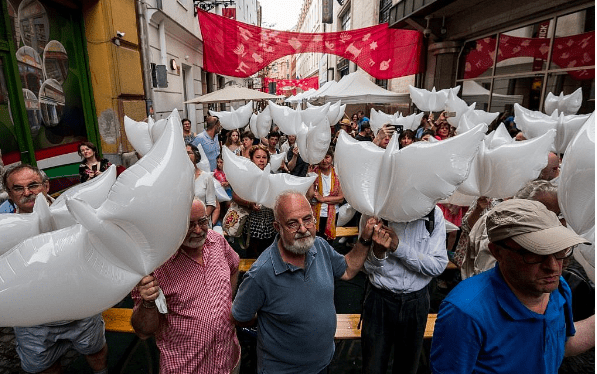The Independent: https://www.independent.co.uk/news/world/europe/olaf-scholz-ap-germans-jews-auschwitz-b2485902.html
Chancellor Olaf Scholz on Saturday called on all citizens to defend Germany’s democracy and fight antisemitism as the country marked the 79th anniversary of the liberation of the Nazi death camp Auschwitz-Birkenau during World War II.
Since 1996, Germany has also marked January 27 as a day to remember the horrors of the Holocaust.
“’Never again’ is every day,” Scholz said in his weekly video podcast. “January 27 calls out to us: Stay visible! Stay audible! Against antisemitism, against racism, against misanthropy — and for our democracy.”
On that day in 1945, Soviet Red Army troops liberated some 7,000 prisoners at Auschwitz in German-occupied Poland. The Nazis murdered more than a million people in Auschwitz, most of them Jews.
In the days before the liberation, the Germans had evacuated tens of thousands of other inmates on foot in what is now called the Death March, because many inmates died of exhaustion and cold in the sub-freezing temperatures.
Altogether, they killed six million European Jews during the Holocaust.
On Saturday, as people in Germany put down flowers and lit candles at memorials for the victims of the Nazi terror, the German chancellor said that his country would continue to carry the responsibility for this “crime against humanity.”
He stressed that the fight against any kind of antisemitism and for democracy is not something that can be done by the government only, but needs the support of all Germans.
“Never again” demands the vigilance of everyone,” Scholz said. “Our democracy is not God-given. It is man-made.”
“It is strong when we support it,’ he added. ”And it needs us when it is under attack.”
Scholz referred specifically to the threat posed by the rise of far-right populists in Germany, elsewhere across Europe and worldwide “who are stirring up fears and sowing hatred.”
At the same time, the chancellor praised the millions of Germans who have joined pro-democracy protests in recent weeks.
“Our country is on its feet right now. Millions of citizens are taking to the streets: For democracy, for respect and humanity,” he said, adding that it was their solidarity “that makes our democracy strong. Showing it confidently in public — as is happening now — is a good thing.”
A report that right-wing extremists recently met to discuss the deportation of millions of immigrants, including some with German citizenship triggered massive demonstrations across the country. Some members of the far-right Alternative for Germany party, or AfD, were present at the meeting.
Growing anxiety over the AfD’s rising support among the German electorate also catalyzed pro-democracy protesters.
The AfD was founded as a eurosceptic party in 2013 and first entered the German Bundestag in 2017. Polling now puts it in second place nationally with around 23%, far above the 10.3% it won during the last federal election in 2021.
The party enjoys major support and is leading in eastern Germany, including the states of Brandenburg, Saxony and Thuringia, slated to hold elections this fall.
One of the oldest German Holocaust survivors, 102-year-old Margot Friedlaender expressed concern about the the spike in antisemitic incidents in the country.
“I would never have thought that it would happen like this again, because that’s how it started back then,” she said on public Television ARD on Friday, referring to the rise of the far-right. Friedlaender said for those of endured the horrors of the Holocaust it is “particularly difficult to understand and very sad.”















